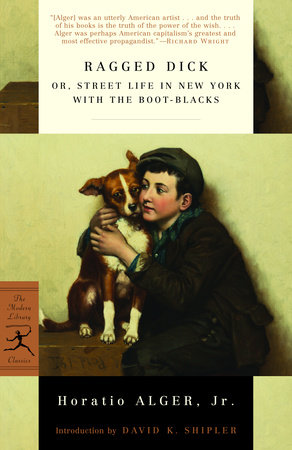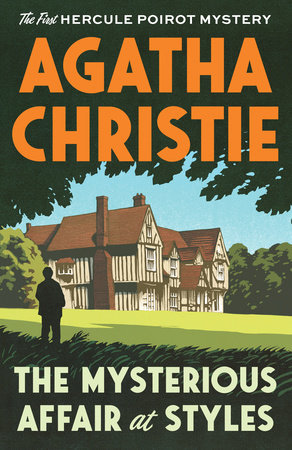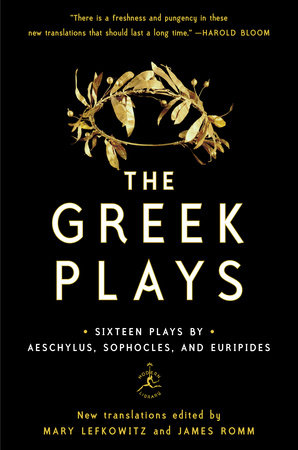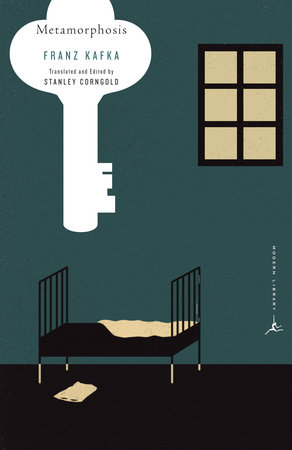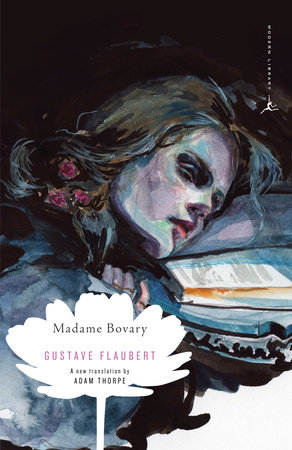Excerpt
Ragged Dick
Chapter I Ragged Dick Is Introduced to the Reader “Wake up there, youngster,” said a rough voice. Ragged Dick opened his eyes slowly, and stared stupidly in the face of the speaker, but did not offer to get up. “Wake up, you young vagabond!” said the man a little impatiently; “I suppose you’d lay there all day, if I hadn’t called you.” “What time is it?” asked Dick. “Seven o’clock.” “Seven o’clock! I oughter’ve been up an hour ago. I know what ’twas made me so precious sleepy. I went to the Old Bowery last night, and didn’t turn in till past twelve.” “You went to the Old Bowery? Where’d you get your money?” asked the man, who was a porter in the employ of a firm doing business on Spruce Street. “Made it by shines, in course. My guardian don’t allow me no money for theatres, so I have to earn it.” “Some boys get it easier than that,” said the porter significantly. “You don’t catch me stealin’, if that’s what you mean,” said Dick. “Don’t you ever steal, then?” “No, and I wouldn’t. Lots of boys does it, but I wouldn’t.” “Well, I’m glad to hear you say that. I believe there’s some good in you, Dick, after all.” “Oh, I’m a rough customer!” said Dick. “But I wouldn’t steal. It’s mean.” “I’m glad you think so, Dick,” and the rough voice sounded gentler than at first. “Have you got any money to buy your breakfast?” “No, but I’ll soon get some.” While this conversation had been going on, Dick had got up. His bedchamber had been a wooden box half full of straw, on which the young boot-black had reposed his weary limbs, and slept as soundly as if it had been a bed of down. He dumped down into the straw without taking the trouble of undressing. Getting up too was an equally short process. He jumped out of the box, shook himself, picked out one or two straws that had found their way into rents in his clothes, and, drawing a well-worn cap over his uncombed locks, he was all ready for the business of the day. Dick’s appearance as he stood beside the box was rather peculiar. His pants were torn in several places, and had apparently belonged in the first instance to a boy two sizes larger than himself. He wore a vest, all the buttons of which were gone except two, out of which peeped a shirt which looked as if it had been worn a month. To complete his costume he wore a coat too long for him, dating back, if one might judge from its general appearance, to a remote antiquity. Washing the face and hands is usually considered proper in commencing the day, but Dick was above such refinement. He had no particular dislike to dirt, and did not think it necessary to remove several dark streaks on his face and hands. But in spite of his dirt and rags there was something about Dick that was attractive. It was easy to see that if he had been clean and well dressed he would have been decidedly good-looking. Some of his companions were sly, and their faces inspired distrust; but Dick had a frank, straight-forward manner that made him a favorite. Dick’s business hours had commenced. He had no office to open. His little blacking-box was ready for use, and he looked sharply in the faces of all who passed, addressing each with, “Shine yer boots, sir?” “How much?” asked a gentleman on his way to his office. “Ten cents,” said Dick, dropping his box, and sinking upon his knees on the sidewalk, flourishing his brush with the air of one skilled in his profession. “Ten cents! Isn’t that a little steep?” “Well, you know ’taint all clear profit,” said Dick, who had already set to work. “There’s the blacking costs something, and I have to get a new brush pretty often.” “And you have a large rent too,” said the gentleman quizzically, with a glance at a large hole in Dick’s coat. “Yes, sir,” said Dick, always ready to joke; “I have to pay such a big rent for my manshun up on Fifth Avenoo, that I can’t afford to take less than ten cents a shine. I’ll give you a bully shine, sir.” “Be quick about it, for I am in a hurry. So your house is on Fifth Avenue, is it?” “It isn’t anywhere else,” said Dick, and Dick spoke the truth there. “What tailor do you patronize?” asked the gentleman, surveying Dick’s attire. “Would you like to go to the same one?” asked Dick, shrewdly. “Well, no; it strikes me that he didn’t give you a very good fit.” “This coat once belonged to General Washington,” said Dick, comically. “He wore it all through the Revolution, and it got torn some, ’cause he fit so hard. When he died he told his widder to give it to some smart young feller that hadn’t got none of his own; so she gave it to me. But if you’d like it, sir, to remember General Washington by, I’ll let you have it reasonable.” “Thank you, but I wouldn’t want to deprive you of it. And did your pants come from General Washington too?” “No, they was a gift from Lewis Napoleon. Lewis had outgrown ’em and sent ’em to me,—he’s bigger than me, and that’s why they don’t fit.” “It seems you have distinguished friends. Now, my lad, I suppose you would like your money.” “I shouldn’t have any objection,” said Dick. “I believe,” said the gentleman, examining his pocket-book, “I haven’t got anything short of twenty-five cents. Have you got any change?” “Not a cent,” said Dick. “All my money’s invested in the Erie Railroad.” “That’s unfortunate.” “Shall I get the money changed, sir?” “I can’t wait; I’ve got to meet an appointment immediately. I’ll hand you twenty-five cents, and you can leave the change at my office any time during the day.” “All right, sir. Where is it?” “No. 125 Fulton Street. Shall you remember?” “Yes, sir. What name?” “Greyson,—office on second floor.” “All right, sir; I’ll bring it.” “I wonder whether the little scamp will prove honest,” said Mr. Greyson to himself, as he walked away. “If he does, I’ll give him my custom regularly. If he don’t, as is most likely, I shan’t mind the loss of fifteen cents.” Mr. Greyson didn’t understand Dick. Our ragged hero wasn’t a model boy in all respects. I am afraid he swore sometimes, and now and then he played tricks upon unsophisticated boys from the country, or gave a wrong direction to honest old gentlemen unused to the city. A clergyman in search of the Cooper Institute he once directed to the Tombs Prison, and, following him unobserved, was highly delighted when the unsuspicious stranger walked up the front steps of the great stone building on Centre Street, and tried to obtain admission. “I guess he wouldn’t want to stay long if he did get in,” thought Ragged Dick, hitching up his pants. “Leastways I shouldn’t. They’re so precious glad to see you that they won’t let you go, but board you gratooitous, and never send in no bills.” Another of Dick’s faults was his extravagance. Being always wide-awake and ready for business, he earned enough to have supported him comfortably and respectably. There were not a few young clerks who employed Dick from time to time in his professional capacity, who scarcely earned as much as he, greatly as their style and dress exceeded his. But Dick was careless of his earnings. Where they went he could hardly have told himself. However much he managed to earn during the day, all was generally spent before morning. He was fond of going to the Old Bowery Theatre, and to Tony Pastor’s, and if he had any money left afterwards, he would invite some of his friends in somewhere to have an oyster-stew; so it seldom happened that he commenced the day with a penny. Then I am sorry to add that Dick had formed the habit of smoking. This cost him considerable, for Dick was rather fastidious about his cigars, and wouldn’t smoke the cheapest. Besides, having a liberal nature, he was generally ready to treat his companions. But of course the expense was the smallest objection. No boy of fourteen can smoke without being affected injuriously. Men are frequently injured by smoking, and boys always. But large numbers of the newsboys and boot-blacks form the habit. Exposed to the cold and wet they find that it warms them up, and the self-indulgence grows upon them. It is not uncommon to see a little boy, too young to be out of his mother’s sight, smoking with all the apparent satisfaction of a veteran smoker. There was another way in which Dick sometimes lost money. There was a noted gambling-house on Baxter Street, which in the evening was sometimes crowded with these juvenile gamesters, who staked their hard earnings, generally losing of course, and refreshing themselves from time to time with a vile mixture of liquor at two cents a glass. Sometimes Dick strayed in here, and played with the rest. I have mentioned Dick’s faults and defects, because I want it understood, to begin with, that I don’t consider him a model boy. But there were some good points about him nevertheless. He was above doing anything mean or dishonorable. He would not steal, or cheat, or impose upon younger boys, but was frank and straight-forward, manly and self-reliant. His nature was a noble one, and had saved him from all mean faults. I hope my young readers will like him as I do, without being blind to his faults. Perhaps, although he was only a boot-black, they may find something in him to imitate. And now, having fairly introduced Ragged Dick to my young readers, I must refer them to the next chapter for his further adventures.


